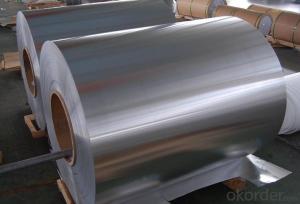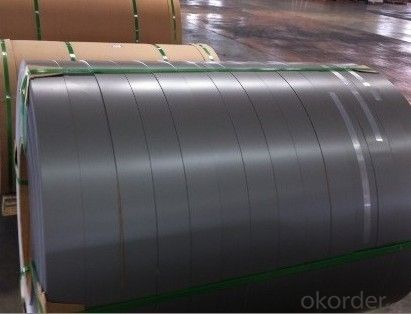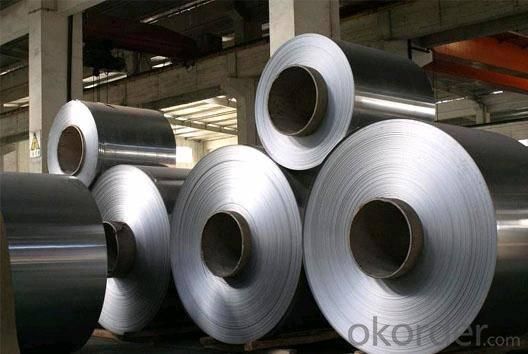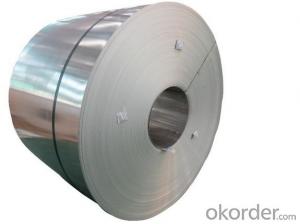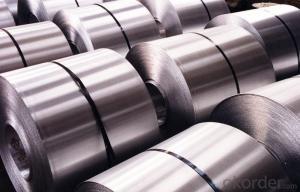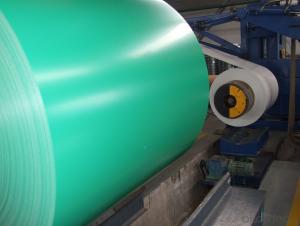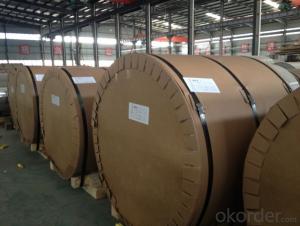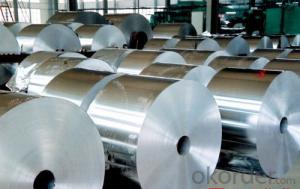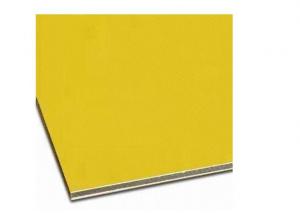Aluminum Coils for Sale for ACP, Aluminum Composite Panel
- Loading Port:
- Shanghai
- Payment Terms:
- TT OR LC
- Min Order Qty:
- 2.5
- Supply Capability:
- 5000 m.t./month
OKorder Service Pledge
OKorder Financial Service
You Might Also Like
Specification
Aluminum Coil for ACP, Aluminum Composite Panel
lProduct Information
| Item | aluminum coil for ACP, Aluminum Composite Panel |
| Alloy Grade | 1100, 3003, 5005 |
| Thickness | 0.3mm~ 3mm |
| Width | 30mm~1850mm |
| Exported Area | USA, UAE, Europe, Asia, Middle East, Africa, South America |
| Min trial order | 2.5 ton each size |
| Tolerance | +2/0mm,thickness tolerance :+0.02/-0.02mm (or according to customers' request) |
lPackaging & Delivery Details
Packaging: Standard seaworthy packing
Delivery: About 25 days after received your advance
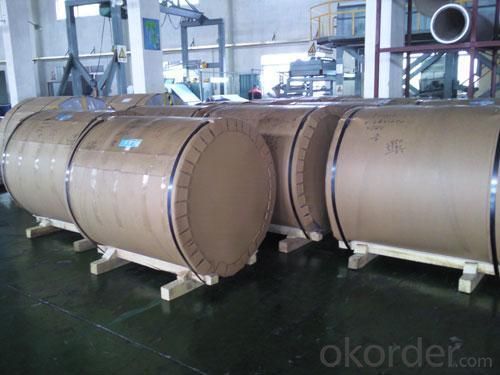
lCompany Profile
CNBM International Corporation, China National Building Materials (Group) Corporation, is one of the largest companies in China building
material & equipment industry, with 42,800 employees and sales in 2005 of US Dollar 4.395 billion. In 2006, China National Building Material Company Limited was listed on Hong Kong Stock Market with the stock code as 3323.
CNBM has been involved in aluminium products for about a decade. With advanced technology and equipment, our products have been sold to the worldwide including America, Europe, as well as South Asia, etc.
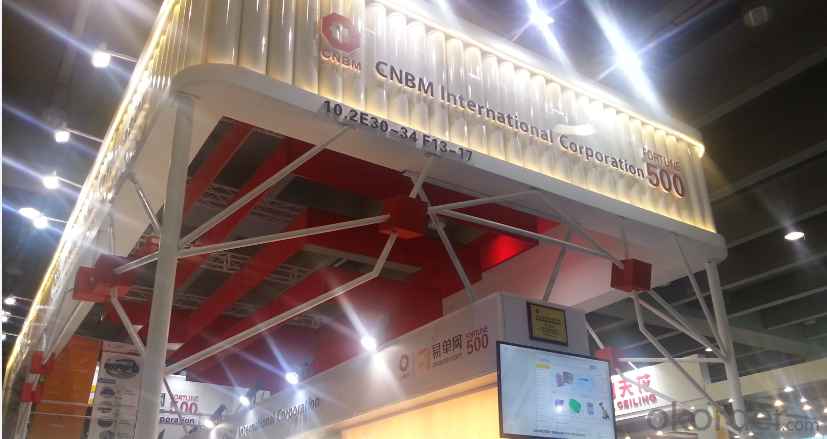
lProduct Images
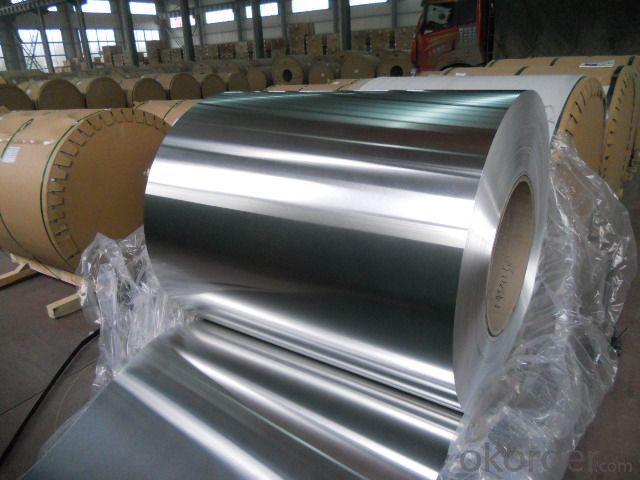
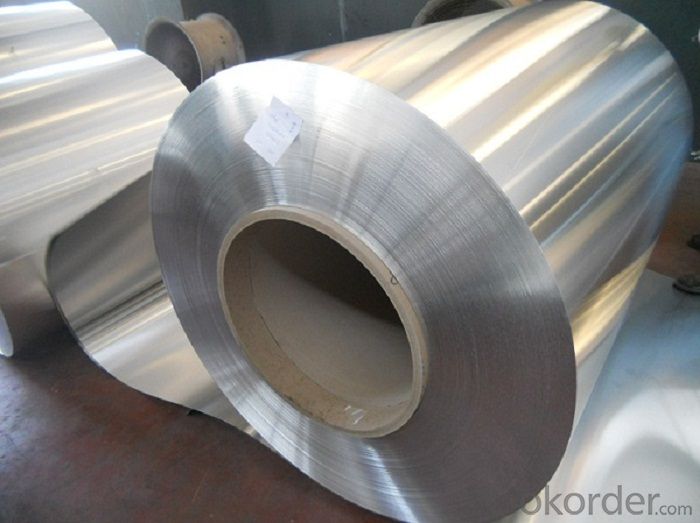
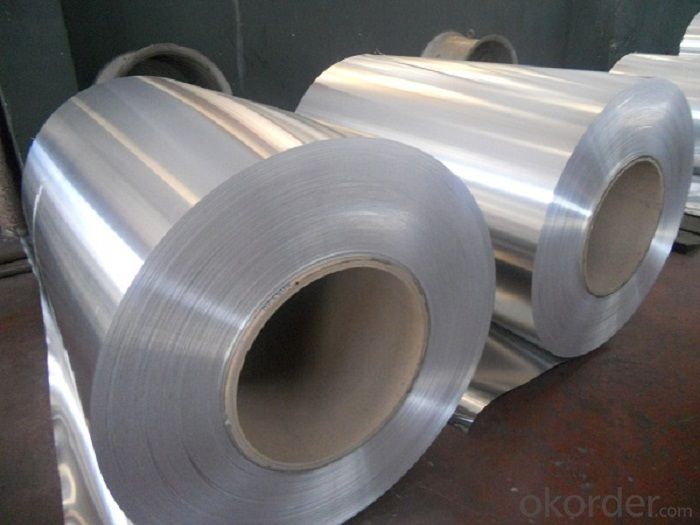
lCertificates
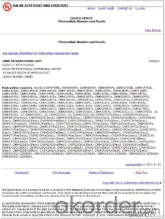
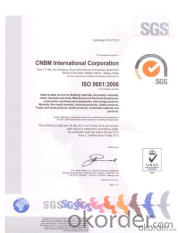
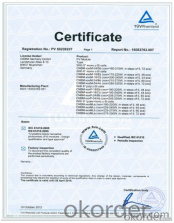
lFAQ
Q: Do you provide free samples?
A: Yes, free samples will be sent to you on freight at destination.
Q: Can I get your latest products catalogue?
A: Yes, it will be sent to you in no time.
Q: What is the MOQ?
A: 2.5 tons
- Q: How are aluminum coils tested for surface cleanliness?
- Aluminum coils are tested for surface cleanliness through various methods and techniques to ensure that they meet the required standards. One common method used is the water break test. In this test, a clean water droplet is placed on the surface of the aluminum coil. If the water spreads out evenly and forms a continuous film without beading or breaking, it indicates that the surface is clean and free from any contaminants. Another method used is the solvent wipe test. In this test, a solvent-soaked wipe is gently rubbed on the surface of the aluminum coil. The wipe is then inspected for any dirt or residue that may have been picked up, indicating the presence of contaminants on the surface. Surface energy measurement is also carried out to test the cleanliness of aluminum coils. This involves measuring the surface energy of the coil using a contact angle measurement device. If the surface energy is high, it indicates a clean surface, whereas a low surface energy suggests the presence of contaminants. In addition, visual inspection is often conducted to check for any visible dirt, oil, or other foreign substances on the surface of the aluminum coil. This can be done using a magnifying glass or under specific lighting conditions to ensure thorough examination. Overall, a combination of these methods is used to assess the cleanliness of aluminum coils, ensuring that they are free from contaminants and suitable for further processing or use in various industries.
- Q: What is the role of aluminum coils in the automotive industry?
- Aluminum coils have a significant impact on the automotive industry, specifically in vehicle manufacturing. These coils are utilized to produce various parts and components like radiators, condensers, and air conditioning systems. One of the primary reasons why aluminum coils are favored in the automotive industry is due to their lightweight properties. Aluminum is considerably lighter compared to other metals like steel, making it an excellent option for enhancing fuel efficiency and reducing the overall weight of vehicles. Consequently, this not only improves vehicle performance but also decreases emissions, thereby contributing to a more environmentally friendly transportation sector. Moreover, aluminum coils possess exceptional thermal conductivity, which is crucial in automotive applications. They efficiently dissipate heat, ensuring the proper functionality of cooling systems and preventing overheating. This is particularly important for components such as radiators, as effective heat transfer is essential for maintaining an optimal engine temperature. Furthermore, aluminum coils exhibit high corrosion resistance. They naturally develop an oxide layer that safeguards against rust and corrosion, rendering them more durable and long-lasting compared to other metals. This corrosion resistance is particularly vital in the automotive industry, where vehicles are exposed to various environmental factors such as moisture, salt, and chemicals. Additionally, aluminum coils offer design flexibility. They can be easily molded and shaped into different sizes and configurations, enabling manufacturers to produce complex and customized components. This design flexibility allows automotive companies to optimize space and maximize efficiency in their vehicles. To summarize, aluminum coils play a crucial role in the automotive industry. Their lightweight nature, excellent thermal conductivity, corrosion resistance, and design flexibility make them an ideal choice for various automotive applications. Consequently, they contribute to improved vehicle performance, fuel efficiency, and overall durability.
- Q: Can aluminum coils be used in the production of signage?
- Yes, aluminum coils can be used in the production of signage. Aluminum is a popular material choice for signage due to its durability, lightweight nature, and resistance to corrosion. The coils can be easily shaped and formed into various sign types, including flat panels, channel letters, and more. Additionally, aluminum can be coated or painted to achieve different colors and finishes, making it a versatile option for signage production.
- Q: What are the different coil slitting options available for aluminum coils?
- There are several coil slitting options available for aluminum coils, including rotary slitting, oscillating slitting, and multi-blade slitting. These methods allow for precise and efficient cutting of the aluminum coils into narrower widths, making them suitable for various applications in industries such as automotive, construction, and packaging.
- Q: Are there any specific guidelines for the handling of aluminum coils?
- Yes, there are specific guidelines for the handling of aluminum coils. These guidelines typically include proper lifting techniques, the use of appropriate equipment such as cranes or forklifts, and ensuring that the coils are stored in a clean and dry environment to prevent corrosion. It is also important to handle the coils gently to avoid any damage or deformation.
- Q: What are the acoustic properties of buildings using aluminum coils?
- Various factors can influence the acoustic properties of buildings that utilize aluminum coils. These coils are commonly employed in the construction industry for purposes such as roofing, cladding, and insulation. In terms of acoustics, these properties can have both positive and negative effects on sound transmission within a building. One of the main advantages of using aluminum coils from an acoustic standpoint is their ability to act as a barrier that reflects sound waves. When installed correctly, they can help prevent sound from penetrating walls or ceilings, resulting in a reduction of external noise sources. This can be especially beneficial in areas with significant noise pollution, such as urban environments or locations near busy roads. Additionally, aluminum coils can contribute to the overall sound insulation of a building. Due to their material properties, they can provide a certain level of soundproofing, particularly when combined with other insulation materials. This can create a comfortable and quiet indoor environment, which can lead to improved concentration, productivity, and overall well-being for occupants. However, it is important to note that the acoustic properties of buildings using aluminum coils may also have limitations. Aluminum is a lightweight material compared to alternatives like concrete or brick, meaning it may not offer as much mass to block sound transmission. Therefore, in situations where high sound insulation is necessary, additional measures such as double glazing, acoustic seals, or thicker wall constructions may be required. Furthermore, the use of aluminum coils can also impact the sound reverberation within a space. Their smooth and reflective surface can cause sound waves to bounce off, resulting in increased echo and reverberation time. This can have a negative effect on speech intelligibility and acoustic comfort, particularly in larger open-plan areas or rooms with high ceilings. Overall, while aluminum coils can provide certain acoustic benefits such as sound reflection and insulation, it is crucial to consider the specific requirements of each building project. Consulting with acoustic engineers or professionals can help ensure that appropriate measures are taken to optimize the acoustic properties of buildings utilizing aluminum coils and address any potential limitations.
- Q: Can aluminum coils withstand high temperatures?
- Yes, aluminum coils can withstand high temperatures. Aluminum has a high melting point of 660 degrees Celsius (1220 degrees Fahrenheit), making it suitable for applications where high temperatures are involved.
- Q: I heard that one pound of aluminum pop tabs are worth more then a pound of aluminum pop cans. Is this true? Thank you.
- The cans also have paint on them so a pound of cans is a pound of aluminum and paint. A pound of pull tabs is all aluminum.
- Q: Can aluminum coils be used in the production of aluminum downspouts?
- Certainly, aluminum coils have the potential to be employed in the manufacturing process of aluminum downspouts. Normally, high-grade aluminum alloy is utilized to fabricate aluminum coils, which are subsequently transformed into thin sheets by means of rolling. These sheets can be conveniently cut and molded into diverse dimensions and forms, including downspouts. The lightweight, long-lasting, and corrosion-resistant characteristics of aluminum make it a favored option for downspouts. Moreover, aluminum coils can be effortlessly manipulated and shaped according to precise design prerequisites, rendering them appropriate for the production of aluminum downspouts.
- Q: How are aluminum coils used in the electrical industry?
- Aluminum coils are widely used in the electrical industry for various applications such as transformers, motors, generators, and electrical transmission systems. These coils are used to create electromagnetic fields, which are essential for the functioning of these electrical devices. Additionally, aluminum coils are preferred due to their lightweight, high thermal conductivity, and cost-effectiveness compared to other materials.
Send your message to us
Aluminum Coils for Sale for ACP, Aluminum Composite Panel
- Loading Port:
- Shanghai
- Payment Terms:
- TT OR LC
- Min Order Qty:
- 2.5
- Supply Capability:
- 5000 m.t./month
OKorder Service Pledge
OKorder Financial Service
Similar products
Hot products
Hot Searches
Related keywords
